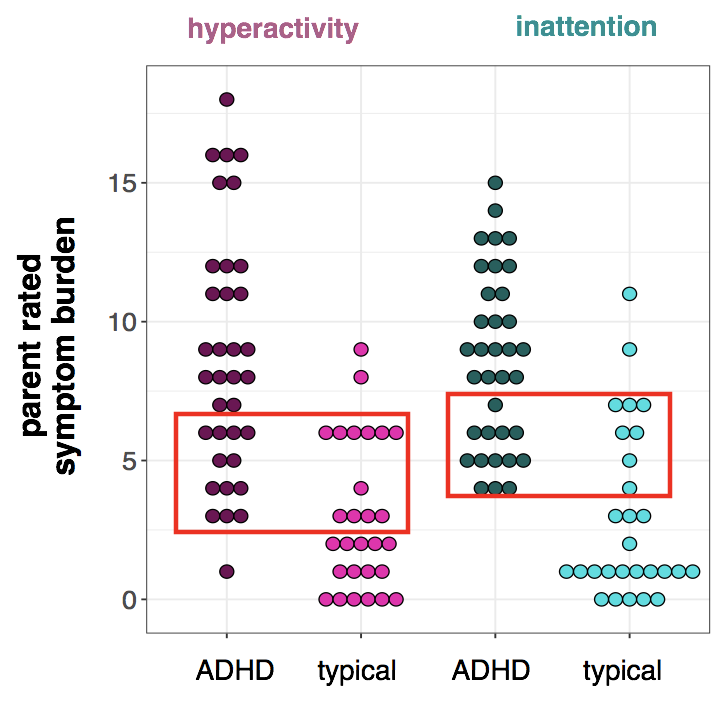
Research
Brain networks underlying learning and attention
Tasks like answering a math question or paying attention in class require the orchestration of brain systems that support vision, motor function, memory, attention, and cognitive control. Using tools from network science, we study how these brain systems functionally interact and how those interactions change with different developmental challenges.
The role of cognitive control in developmental difficulties
Learning difficulties affect more than 10% of students and are often comorbid with other developmental difficulties, such as ADHD. Our research examines the idea that deficits in cognitive control and dysfunction within cognitive control brain networks may contribute to these developmental difficulties, regardless of the specific disorder or challenge.
Using the brain to understand treatment
Determining which treatment will improve outcomes for a child with a developmental difficulty is challenging. Our research seeks to identify the neurobiological factors that influence a child’s likelihood of responding—or not responding—to treatment, whether educational or medical. This understanding is a crucial step toward developing more effective, individually tailored treatments and improved outcomes.
Parsing heterogeneity across youth
Developmental difficulties involve individuals with diverse cognitive abilities and symptom profiles. This variability can make it difficult to determine what treatment would be most effective for an individual. Neurobiological data has the potential to play a pivotal role in addressing this heterogeneity to identify important neural signatures that may be present in different subgroups.




